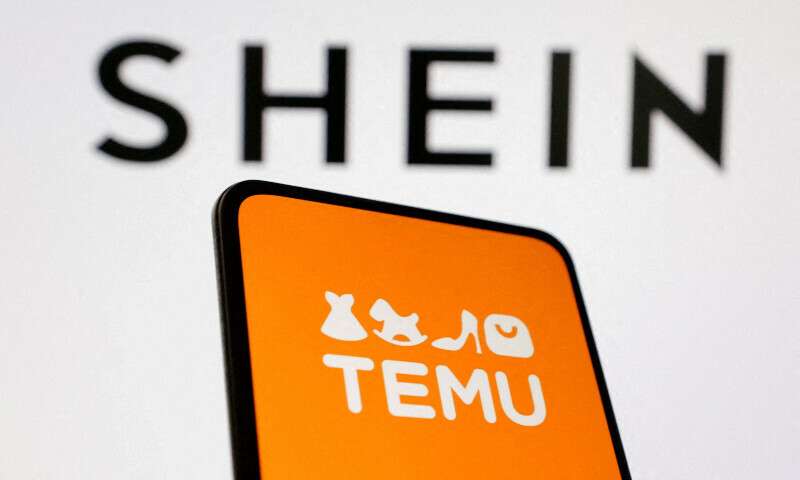In recent years, fast-growing e-commerce platforms like Shein and Temu have rapidly evolved from offering low-cost clothing and home goods to becoming notable players in the global toy market. As American and European shoppers gear up for the highly anticipated Black Friday weekend, these platforms are capitalizing on an increasing demand for budget-friendly toys, especially in a retail environment that leans toward deep discounts and holiday shopping bargains.
H1: The E-Commerce Toy Market Expansion by Shein and Temu
While Shein and Temu were not traditionally considered go-to sources for holiday gifts such as toys, the two platforms have increasingly shifted their business strategies to cater to this demand. Offering everything from plush animals to action figures, these platforms now see toys as one of their fastest-growing categories. This article explores the factors driving this shift, the challenges and opportunities these platforms face, and the concerns raised by both regulators and consumers.
H2: A Rising Demand for Toys on Shein and Temu
Shein, a platform primarily known for selling affordable clothing, has reported a significant increase in sales in its toy category. A spokesperson for Shein noted that toys have been one of the fastest-growing sectors on their platform, showing double-digit growth year over year. Similarly, Temu, a rising e-commerce contender, has observed a spike in searches for toys. The platform, which operates on a mobile-based app similar to Shein, has positioned itself as an accessible digital store catering to cost-conscious shoppers, particularly those seeking holiday deals.
In 2023, global toy sales reached a staggering $108.7 billion, as reported by market research firm Circana. Both Shein and Temu are aiming to capture a larger portion of this market by expanding their toy offerings. Their focus is particularly evident during the holiday shopping season, when toy sales peak due to consumer demand for gifts.
H2: Challenges from Major Retailers
Despite the rapid expansion of Shein and Temu in the toy market, they face tough competition from established mass retailers like Amazon, Walmart, and Target. According to research analyst Linda Bolton Weiser, these three giants dominate the toy market in the U.S., accounting for nearly 70% of toy sales. However, Shein and Temu’s appeal lies in their ability to offer low-cost alternatives for shoppers seeking budget-friendly options. According to market research firm Kantar, 13% of U.S. holiday shoppers plan to buy gifts from Temu this year, up from 9% last year.
H3: Shein and Temu Targeting Lower-Income Shoppers
One of the primary reasons behind the growth of toy sales on platforms like Shein and Temu is their appeal to shoppers earning under $50,000 a year. Many of these consumers have been squeezed by rising inflation since 2021, leading them to seek cheaper alternatives for gifts. Shein and Temu have tapped into this market by offering toys at competitive prices, sometimes significantly lower than traditional retailers. This move has helped to capture a more price-sensitive demographic, including younger shoppers in Europe.
Temu has also noticed a similar trend, especially among younger consumers. A study by Circana revealed that 60% of shoppers aged 18 to 34 in Europe have purchased toys on platforms like Temu and Shein. This younger, tech-savvy group of shoppers is more inclined to browse e-commerce sites for convenience and deals, driving up the demand for toys and other low-cost products.
H2: Concerns Over Counterfeit Products
While Shein and Temu have successfully captured a growing share of the toy market, concerns surrounding counterfeit products remain a significant issue. Both platforms have faced criticism from regulators and consumer advocacy groups, particularly in relation to fake or unlicensed products that could pose safety risks. In response to these concerns, Shein has stated that it requires all sellers to certify that their products do not infringe on any intellectual property rights and are not counterfeit. The platform also has a dedicated team that ensures sellers comply with these guidelines.
Temu has echoed these claims, stating that it takes immediate action to remove any listings suspected of being counterfeit. However, despite these precautions, the platforms continue to face scrutiny for the presence of unlicensed or fake products. Notably, Shein and Temu have been criticized for selling counterfeit versions of well-known toy brands, including Mattel’s Uno card game and Hot Wheels cars, even though the companies do not directly sell their products on these platforms.
H3: The Dangers of Counterfeit Toys
The risks associated with counterfeit toys extend beyond intellectual property concerns. Fake toys are often made with subpar materials, fail to meet safety standards, and may even contain hazardous components such as small parts that pose choking hazards. MGA Entertainment, the maker of popular toys like LOL Surprise! dolls, has expressed concerns about counterfeits appearing on Shein and Temu, particularly with its Miniverse brand. CEO Isaac Larian warned that these counterfeit products could endanger young children due to safety violations, including improper age labels and hazardous materials.
Similarly, toy maker Spin Master raised alarms about counterfeit versions of its “Ms. Rachel” doll being sold on these platforms. The company’s spokesperson noted that these knock-off toys may not have undergone proper safety testing, which could potentially harm children who use them. In response, Temu stated that it had immediately removed the counterfeit listings after being alerted by Spin Master.
H3: Efforts to Combat Counterfeiting and Improve Product Safety
In an attempt to curb the spread of counterfeit products, both Shein and Temu have strengthened their monitoring systems. Shein has a dedicated compliance team that works to ensure the integrity of the products sold on its platform. The company takes swift action against any seller found violating its policies and removes non-compliant listings as part of its standard procedure.
Temu has also put systems in place to prevent the sale of fake products. The platform uses proactive monitoring systems that scan new product posts to ensure compliance with intellectual property laws. Additionally, Temu has made it clear that it takes complaints seriously and investigates any reports of counterfeit goods on its platform.
H2: The Future of Shein and Temu in the Toy Market
Despite the concerns over counterfeit products, Shein and Temu’s foray into the toy market seems poised to continue growing. Both platforms are working to attract well-known toy distributors like Funko and Hasbro to join their online marketplaces. Shein is offering incentives such as waiving fees for new sellers for the first three months, making it an attractive option for toy manufacturers. Temu, on the other hand, has opened up its platform to U.S.-based sellers, further broadening its toy inventory.
For companies like MGA Entertainment, Shein and Temu represent a potential new revenue stream. However, as Larian has noted, they must balance the benefits of reaching new customers with the risks posed by counterfeit products and safety concerns.
H3: Conclusion: Navigating the Growth of Toy Sales on E-Commerce Platforms
The increasing presence of Shein and Temu in the global toy market reflects a broader shift in e-commerce, where shoppers are increasingly turning to digital platforms for holiday gifts. While major retailers like Amazon, Walmart, and Target continue to dominate the toy market, platforms like Shein and Temu have carved out a niche by offering budget-friendly options for price-sensitive consumers. However, concerns over counterfeit products, particularly in the toy category, remain a challenge for these platforms as they navigate the complexities of intellectual property and consumer safety.
H2: FAQs about Shein and Temu’s Expansion into the Toy Market
Q1: Are the toys on Shein and Temu safe for children?
A1: While Shein and Temu have policies in place to prevent the sale of counterfeit toys, there are concerns about the safety and quality of some products. It is essential for consumers to verify the authenticity of items before purchasing, especially for toys aimed at younger children.
Q2: How do Shein and Temu address counterfeit toys?
A2: Both platforms have teams dedicated to ensuring compliance with intellectual property laws. They take down counterfeit listings upon discovery and work proactively with brands to remove fake products from their sites.
Q3: Why are Shein and Temu selling toys now?
A3: Shein and Temu are expanding their product offerings to capture a larger share of the growing toy market. With global toy sales reaching over $100 billion, both platforms see an opportunity to increase revenue by catering to budget-conscious shoppers looking for affordable holiday gifts.
Q4: Are major toy manufacturers like Mattel selling on Shein or Temu?
A4: No, major toy manufacturers like Mattel do not directly sell their products on Shein or Temu. However, counterfeit versions of their products have appeared on the platforms, leading to concerns over intellectual property violations.
Q5: Can I find the latest toys on Shein and Temu?
A5: While Shein and Temu offer a wide range of toys, they may not always carry the latest products from popular brands. However, they do provide affordable alternatives and are increasingly attracting toy distributors to their platforms.
MUST READ:



